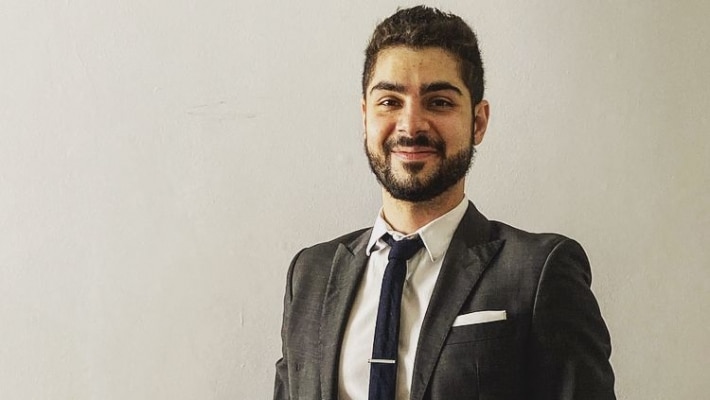Gabriel Brazil. PHOTO: DISCLOSURE
In recent years, companies have undergone significant changes in terms of exposure to social and environmental risks. Threats are now not confined to the scope of regulation (usually associated with fines and sanctions), but are becoming more diverse, which affects the reputation sphere as well as access to finance.
In Brazil, there is an increasing focus on various sectors, including but not limited to those related to the Amazon region. This is also true for those sectors that are only exposed to indirect impacts, with supply chain risks and which are becoming increasingly important. Segments such as animal protein, agriculture, mining, energy and infrastructure remain the most visible, but others such as finance, retail and technology have followed the latest global trends and also found themselves in the spotlight when they were thought to be connected. with unstable corporate policies. practice. We understand that attention has been heightened during the COVID-19 pandemic due to increased social anxiety and the constant mobilization of social movements that continue to be amplified through social media. So we do not see this trend disappearing.
As such, I have no doubt that companies that are not yet convinced of the clear benefits of adopting ESG measures are already lagging behind by this point. A growing body of literature on this subject is almost unanimous about the multidimensional benefits – or at least non-negative effects – of approaches to ESG investments in a number of areas, including reputation, portfolio expansion, and risk mitigation. One way to convince yourself of this is to look around: all developed countries are talking about this, mainly in Europe, but also in Asia and the United States.
In this way, companies can prepare for this new paradigm by developing strong and long-term capabilities, relying on outside help when needed. The ESG agenda should not be seen as a symbol and often requires a scientific approach to be truly effective. In this sense, it’s important to avoid clichés and focus on what really matters to your business plan. It is important to note that more and more efforts are now being made by regulators, especially in Europe – but certainly also in other countries, in the coming months, given the region’s role as agenda-setting in the ESG – to avoid green laundering initiatives. Thus, companies should avoid portraying old business practices wrapped in new labels and focus on innovative ways to make a difference. Engaging local communities, NGOs and experts is an interesting recipe for success.
Federal government indifference to social and environmental issues hinders ESG program
In Brazil, ESG risks have been compounded by a notorious lack of interest from the federal government in social and environmental issues, which has influenced this agenda in three main ways. First, government agencies such as IBAMA suffered from severe underfunding, which limited their ability to support companies in licensing processes and other tactical situations, including incidents.
Second, the government’s negative rhetoric has empowered illegal farmers and miners, which, along with fewer inspections, led to more fires and deforestation, which in turn had negative side effects for legitimate companies, including exporters. Third, the government has made limited efforts to develop sustainability mechanisms that limit the chances of local companies to participate in global trends. Brazil was recently excluded from a World Bank initiative to support a carbon credit program in emerging economies due to internal problems, according to an article in Brazilian media.
This means that the risks are high for companies that do not closely monitor the political situation and do not have reliable mitigation protocols. These are risks that have a particular impact on operational performance and integrity, depending on the nature of their impact.
However, it should be noted that the government’s negative attitude towards this issue also opens up opportunities in Brazil. Private actors will have the opportunity to lead and set the agenda for sustainable investment practices across multiple fronts, including environmental. Initiatives on topics such as carbon neutrality, energy efficiency and waste management are likely to be some of the most prominent examples.
We hope the environmental agenda becomes a hot topic in the 2022 election debate, reflecting the political polarization Brazil is experiencing. While President Jair Bolsonaro’s political group will likely continue to characterize the agenda as something related to the so-called “globalist conspiracy” aimed at reducing national sovereignty, forces from the center-right to the left are likely to use resilience as a central theme. their economic platforms. The topic of diesel and gas prices will be controversial, as they continue to be an important issue for voters, demanding unpopular short-term solutions. Thus, this debate is likely to be inconsistent in many ways, reflecting the difficult socio-economic situation in Brazil.
Finally, companies will find themselves caught between different economic incentives as politicians from different currents and across the political spectrum explore different aspects of the ESG agenda in order to leverage their platforms. Again, monitoring the political landscape and understanding these incentives will provide companies with the best basis for mitigating risks and constructively positioning themselves in the new corporate paradigm that has emerged.
* Gabriel Brasil is a Political Risk and ESG Analyst at the Southern Cone of the risk management consultancy Control Risks. He holds a degree in economics from the Federal University of Minas Gerais and a master’s degree in international political economy from the University of São Paulo.
















